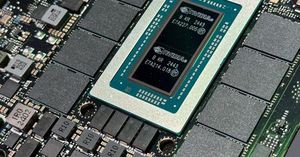The European Union has taken significant steps toward incorporating alternative protein sources by authorizing the use of mealworm powder derived from Tenebrio molitor larvae for food products. Starting from February 10, 2025, food manufacturers within the EU can legally mix UV-treated mealworm powder in various baked goods such as bread, pastries, and even cheese.
This breakthrough decision, formalized by the regulation EU 2025/89, follows the French company Nutri'Earth's initiative, which applied back in 2019 to include this novel food ingredient. Authorities have examined the application thoroughly, culminating in the green light for mealworm powder's use, which is anticipated to afford both nutritional benefits and sustainability advantages.
Under the new rules, products might contain up to 4 grams of mealworm powder per 100 grams of end product for baked goods, but only 1 gram per 100 grams for cheese, promoting responsible consumption of this protein source. Commenting on the innovative move, the EU Commission remarked, "The people of the EU can choose what they eat, and no one forces them to eat insects or worms.”
Nutri'Earth has been granted exclusive distribution rights for the mealworm powder for the next five years, ensuring they lead the market on this front. Their approach utilizes UV treatment, which is employed to eliminate potential pathogens and bolster the vitamin D content of the powder, enhancing its nutritional profile. Such regulatory measures are intended to provide consumers with safe and health-promoting food options.
Though unique, this approval is not unprecedented. The EU has previously allowed other insects to be used as food, including the house cricket and the yellow mealworm itself, which was approved back in 2021. This iterative approach to food innovation indicates the EU's gradual acceptance of edible insects—a practice already common across various cultures worldwide.
Health professionals laud the nutritional qualities of mealworms, describing them as protein-rich and abundant with polyunsaturated omega-3 fatty acids, along with B-vitamins and minerals. The German Food Association highlighted, “Mealworms are considered good sources of the important polyunsaturated omega-3 fatty acids and are packed with B-vitamins and minerals.”
Another concern highlighted by the new regulation is potential allergens. The EU regulation mandates clear labeling on packaging, ensuring visibility for those who might be allergic to substances such as shellfish or dust mites, as they could also react to mealworms. Regulations stipulate the product must explicitly denote the presence of mealworm powder, labeled as “UV-treated larva powder from Tenebrio molitor.” Consumers will find these allergen warnings either highlighted alongside or nearby the ingredient list.
Advocates for sustainable food consumption see the incorporation of insects as pivotal for environmental goals. They note the efficiency of insect farming, pointing out, “The insect farming consumes less space, water, and feed compared to traditional livestock farming.” Given the rising concerns over climate change and food security, the shift to utilize insects as viable food sources is perceived as not just innovative but necessary for the future.
European consumers remain skeptical about incorporating insects like mealworms in their daily diets, with surveys indicating hesitance largely exists among older demographics. Yet, as legislation opens the door, it may soon become common to see mealworm-infused products lining store shelves as consumers adapt to new, environmentally friendly protein alternatives.
With the EU easing way for insects within the food supply, the conversation on sustainable eating and food security is forecasted to gain momentum, challenging tradition and preference among Europe’s consumers.



